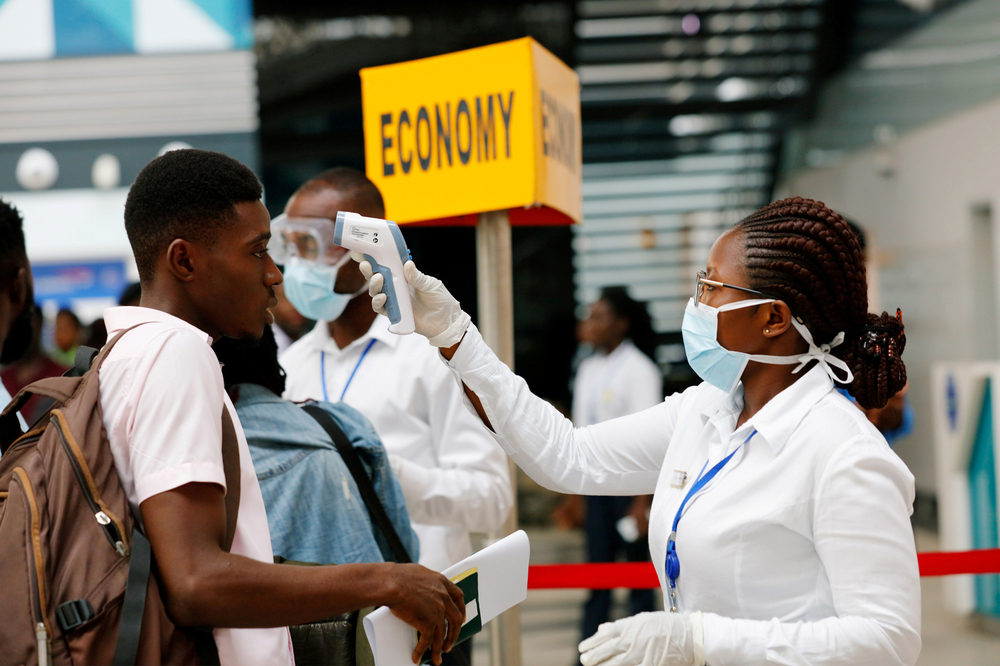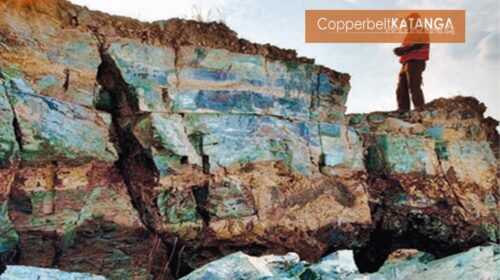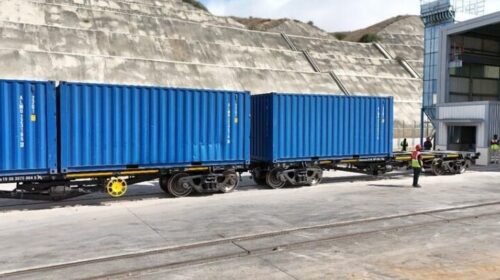Fighting COVID-19 in the DRC
Only weeks after the discharge of its last Ebola patient, the DRC has been hit by the coronavirus pandemic. Barbro Ciakudia examines the special problems this war-torn country faces in dealing with the virus and calls for solidarity from the diaspora.
On 23 March 2020, the South African President, H.E. Cyril Ramaphosa, announced a three week lockdown in response to COVID-19. The President also confirmed that the military will be deployed in order to support the police in enforcing the nationwide lockdown. On the day of the speech, South Africa’s Department of Health had stated that more than 400 cases of COVID-19 had been confirmed in the country, which is the highest number in Africa so far.
This week, we have seen many other African leaders discussing a potential lockdown and enforcing measures in an attempt to reduce the spread of the virus. This includes countries such as Senegal and Ivory Coast declaring a state of emergency, and the closure of borders in countries such as Zimbabwe, Nigeria and Ethiopia. The virus did take some time before it reached Africa. However, just like in other parts of the world, the spread has been rapid.
COVID-19 is spreading beyond control in countries where the healthcare systems are underfunded and understaffed. According to Ottar Mæstad’s article “Corona in Africa – What Now?”, there are only between four and eight nurses for every 10,000 inhabitants in countries such as Ethiopia, Tanzania and Uganda. However, in one of the world’s richest countries, Norway, there are 180 nurses for every 10,000 inhabitants. This makes the healthcare system extremely vulnerable and unprepared for such a virus.
The case of the Democratic Republic of Congo
March 3 2020 was a significant day for the Democratic Republic of Congo (DRC), as the last Ebola patient was discharged from a treatment centre in the north-eastern town of Beni. This was a victory for the country, which had according to the World Health Organization (WHO), seen more than 2,000 people die from the Ebola virus since August 1, 2018. However, it did not take long until the first person with COVID-19 landed in the capital city, Kinshasa.
Since 10 March, DRC has recorded 45 cases of COVID-19, two of them fatalities. Unfortunately, similar to other countries across the world, there was a delayed reaction and internal flights were still operating which led to the virus spreading beyond the capital city to the Haut Katanga region.
A reactive measure forced DRC to impose a 48-hour lockdown in the mining rich Haut Katanga region. The region accounts for nearly all of the country’s output of cobalt, a key ingredient in all electronic devices. Cobalt is the key element within lithium-ion batteries, which allows them to produce more power and last longer. As the demand for electric vehicles continues to rise, the worldwide consumption of cobalt will follow. According to RCS Global, DRC produces about 60% of the world’s cobalt.
The word “lockdown” raises great concerns in countries such as the DRC where the majority of the population is forced to go out every day in order to make ends meet. In other parts of the world, we have seen governments play a significant role in ensuring the economic safety of its population and working hard towards implementing innovate initiatives in order to reassure the population that “everything will be okay”. An example is in Norway, where on 15 March, the Prime Minister announced that a $10bn fund would be created to support SMEs and large companies to survive the country’s worst economic downturn in years.
Fighting COVID-19
In DRC, there should be a targeted campaign towards raising awareness about the virus. This campaign should be at the heart of the work of the Congolese journalists, as they play a vital role in shaping the narrative in a local context. How can people practice social distancing, self-isolation and be quarantined in countries such as the DRC? How can you practice social distance in a busy market place in the heart of Kinshasa or self-isolate when you live in a small space with your family and with friends of your family? The country must look beyond the measures that have been urged by WHO, in order to find local solutions to prevent the spread of the virus.
In an already bleeding country such as the DRC, this challenge might be catastrophic. A lockdown is asking the population to stay at home in order to prevent being infected by the virus and to prevent its spread. However, it is also asking the majority of the population to stay at home with limited or no food and water security. This is very challenging as these are necessities and the spread of the virus will continue unless these major issues are addressed.
It is significant for not only the government but also the private sector to look towards finding solutions for the most vulnerable. Whilst analysing the spread of the virus, it is important to note that the world has seen that no person is immune to it. However, as more governments are enforcing measures to keep its population at home, it is vital to also look at innovative solutions in order to make it possible for its population to actually survive in these new conditions.
As proven through various investments in the DRC, the private sector plays a major role in the country’s development. This includes corporations but also individuals. According to the United Nations Human Rights Office of the High Commissioner, the DRC has an abundance of natural wealth, including a multitude of minerals such as gold, copper, diamonds, cobalt, cassiterite (tin ore) and coltan, as well as coffee, oil and timber. However, these resources have failed to benefit the people of a country which is often referred to as one of the “poorest countries in the world”. Although the country is rich in terms of its resources, it remains very poor, and the challenge for this nation will be to limit the virus’ spread whilst at the same time ensuring that the population have access to the basics, such as food and water.
A call for innovate solutions
It is imperative that the government work closely with the private sector in order to reduce and cap the prices of basic necessities. This needs to be managed strictly and sanctions must be enforced if not followed. Furthermore, the government must urgently work with companies within the country to increase the production of hand soap and hand sanitisers locally. Along with the production, measures must be taken to ensure that these products can reach the ones who are unable to pay for it.
The diaspora living in countries that are currently in lockdown can play a major role in the fight against COVID-19 in DRC. They have a deepened understanding of the measures that their respective countries have been forced to take, and also understands the local context in the DRC.
In Ethiopia, the Ethiopian Diaspora Trust Fund (EDTF) was launched on 22 October 2018, in a response to the Prime Minister, H.E. Abiy Ahmed’s call for $1 a day by the diaspora to help support critically needed social projects in the country. This is an initiative that can be replicated in the DRC; working with the diaspora to set up a fund which will allow people of good will to donate money, which can be used towards supporting families with basic needs and also to support the government in the response against Covid-19.
An initiative that was recently launched by one of the country’s most prominent musicians, Fally Ipupa, through his foundation, aims to unite Congolese across the world in order to fight the impact of the coronavirus through distributing essential food and goods to the most vulnerable in Kinshasa.
This is a significant time for the Congolese people across the world to unite, to support and advise the government and to create innovative solutions in an effort to put in place recovery measures for the country to come out of this crisis even stronger.
Source:African Business Magazine





